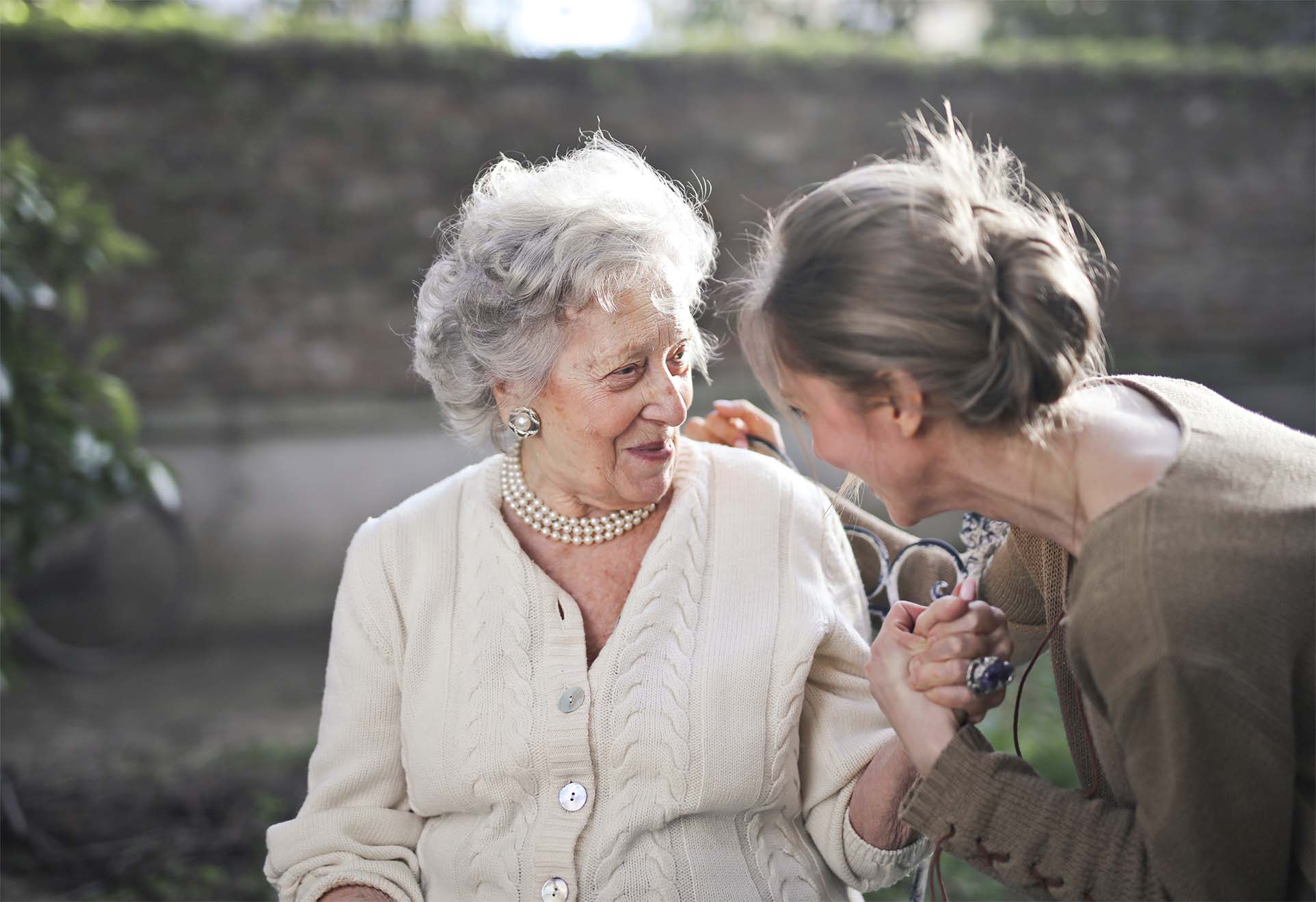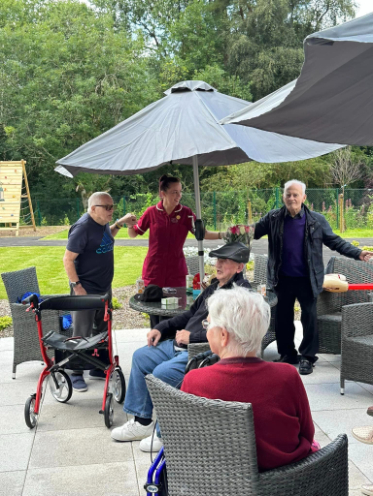How to Get an Elderly Person into a Care Home

With an aging population, it is common for older people in the UK to experience gradual or sudden changes such as a decline in health, well-being, or mental capacity which results in the need for personal or medical assistance on a daily basis. This often means that individuals are unable to live in their own homes anymore and will therefore need to move into an assisted living facility where they can receive around-the-clock care where quickly staff members respond to residents' needs.
Daily life at home can become increasingly difficult for both the elderly person and their family caregivers or visiting family members. Care homes and nursing homes can provide 24/7 medical and personal care to elderly people with a variety of healthcare needs, relieving them of daily stresses or struggles. This blog will outline what to consider when making the move into a care home to make it as easy as possible for all involved.
Have An Open Conversation With Your Elderly Parent or Loved One
To reduce any stress or worries that a person in old age may be experiencing, it is important to have an open conversation with them when the time comes. Understanding the changes that happen when moving into a care home and changing their existing daily routine can be difficult for someone to accept, therefore it is essential to have an open conversation before the process starts. Once your loved one becomes more comfortable with the thought of moving into a safe environment, arrange multiple care home tours around several local care facilities so that you and your elderly loved one can see what care homes or nursing homes offer in terms of a satisfying new routine as well as meet the trained nurses and care team.
Your loved one may need plenty of reassurance that they can maintain independent living, but ultimately their daily living will improve with the support and assistance that is available, providing peace of mind for the entire family. Living in a residence where one must live on their own can become isolating and overwhelming once someone reaches a certain age, especially when living with medical conditions that challenge a person's mental health or physical health. An assisted living facility or care home provides individuals with fewer responsibilities and a better way of life where health conditions or illnesses can be managed.
Keep Your Loved One Involved in Any Decision-Making Where Possible
When it comes to making decisions about transitioning into a care home, it is essential to keep your elderly parent or loved one involved throughout the entire process, and allow them to make specific choices as this is who is affected most by the move. Respect their wishes and take into account any preferences they may have, which will help you find the best-suited care home for your loved one.
For individuals with health conditions such as dementia, it may be necessary to acquire a power of attorney to make decisions on behalf of your aging parent or partner. However, even in these cases, try to involve them as much as possible in the decision-making process to minimise stress, worry, and confusion. By considering your loved one's preferences and wishes you can ensure a smoother and more positive experience as they move into a care home.
Look at a Range of Care Homes In Your Local Area
Whether you are considering a nursing home, residential home or all-inclusive care home, it is essential to do your research into a range of care homes to discover which one is most appropriate. When doing your research, make sure you have established what type of care your loved one requires, whether that be residential care, nursing care, dementia care or palliative care. Some care homes or nursing homes may offer all of these care types, while others may only specialise in one type of care. Online, anyone can access a care home's most recent inspection report which rates areas of the care home from a professional governing body.
Another way to see whether a care home is as good as it claims is by checking its reviews on websites such as carehome.co.uk or Google. This provides a better insight into if the care home meets your expectations and will provide appropriate care for your family member's health care needs.
Consider the Overall Needs of Your Elderly Relative
Each care home is unique and offers its own specific services and amenities. It's important you talk to a healthcare professional to understand the type of care your loved one requires, as this will determine the right type of care home. You can ask for a health needs assessment via your local council, GP, or a care home manager who will provide advice on the type of care your loved one requires and whether it's minimal or extensive support they need. Care services such as dementia care or nursing care offer a higher level of support and usually involve nurses providing medical care alongside personal care and emotional support to those with reduced mental capacity and immobility.
When you notice a loved one struggling to get around their own home or complete daily chores, this is when it's likely the right time to begin your care home search. All-inclusive care homes are becoming increasingly popular as they provide one set fee and offer a range of care services, which guarantees a continuum of care during a person's care journey.
Understand All Types of Costs
When finding out the costs of moving into a care home, it's important to do your research. Many residents are known to 'self-fund' their care by paying for their care via savings, assets or pensions. As part of a person's care package, this will usually include their personal care or medical care, facilities, accommodation, meals and activities within the care home.
If someone is unable to pay for their own care, there are some financial resources available such as from the local authority or NHS. If you aren't sure about whether you can afford care home costs and require some financial advice, you can contact a financial advisor or speak to a care home manager who can advise on costs and disclose whether they accept funding.
Seek Advice From A Professional Carer or Local Authority
Speaking to somebody with industry knowledge, such as a social worker from the local council, a GP or a care home manager can usually provide the answers you need to your financial queries. A financial assessment is often carried out by the local authority which determines whether a person meets the funding threshold or whether they will need to contribute to the cost of their care. If someone has a 'primary health need', they may be deemed eligible for NHS Continuing Healthcare. This is when the NHS funds a person's care entirely, but there are multiple checklists and assessments that need to be carried out.
If you are interested in a particular care home, you can speak to a member of management to find out their fees and expectations and whether they accept funding. They will also help you to get in touch with the right people for you to receive the information that you need and progress to the next steps.
Experience a Vibrant Life at Mearns View Care Home
Mearns View is a purpose-built, all-inclusive care home located in Newton Mearns in East Renfrewshire. Our care team is dedicated to providing outstanding residential care, nursing care, dementia care and respite care on a 24/7 basis. We work closely with residents and their loved ones to establish their needs and interests, and prior to admission, will carry out a care needs assessment to ensure we can establish the best care approach. As we offer many different care services, residents can transition from one type of care to the next when it's needed.
As part of our all-inclusive lifestyle, we offer a range of facilities and services including bedrooms with a walk in shower, private garden, a hair & nail salon, garden café and cinema room for residents to enjoy on a daily basis. Whether a resident fancies a relaxing pamper session, afternoon tea outside with loved ones or watching a film in a cosy setting, we can cater to many interests.
Our care home in Newton Mearns intends to provide residents with a luxury, five-star lifestyle. The team at Mearns View has received extensive training in order to meet a variety of health and well-being needs, and our staff members interact with residents to get to know them personally and form strong bonds for residents to feel as content and comfortable as possible in their new home.
Get in Touch With The Friendly Team
At Mearns View Care Home in Newton Mearns, we are available to answer any questions you may have about our care services or facilities. We understand that making the decision to move a family member into a care home can be daunting, so are here to make it as easy as possible for you. Call the team on 0141 484 7555 or email info@mearnsviewcare.co.uk to find out how we can help you.





